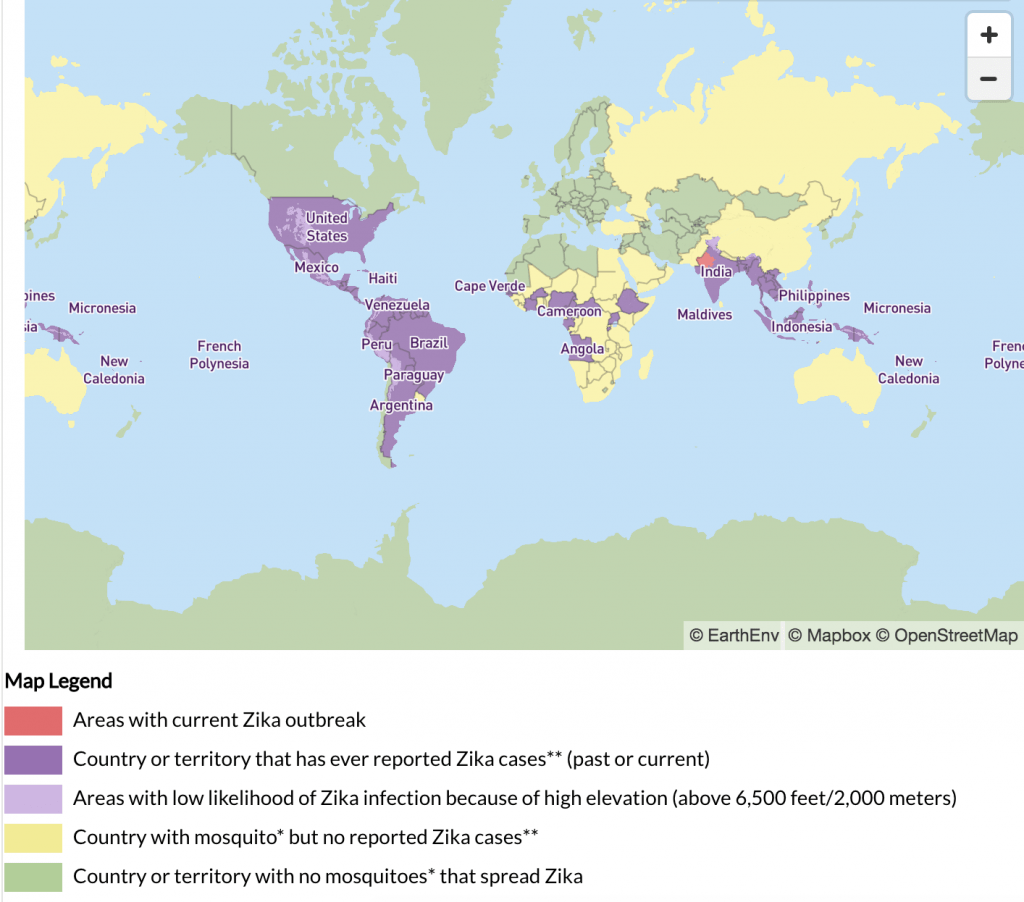Summer is rapidly approaching for those of us in the Northern Hemisphere. For some, the warm weather can’t come fast enough. With warmer weather comes the fact many families plan holidays, and many opt to travel to tropical climates for some much needed (and earned) rest and relaxation. Some families bring their pets to their tropical locales. Now in the planning stages of such vacations, pet parents are increasingly asking their veterinarians about Zika virus infection and the potential impact on their pets. So, I’m writing this post to hopefully allay some fears and anxiety about this viral infection. Please share with other pet owners to help me disseminate the information. Happy reading!

Zika Virus – What is it?
Zika virus was first identified in rhesus monkeys approximately 70 years ago in Uganda. The virus is transmitted via the bite of an infected Aedes aegypti mosquito. Other Aedes spp. also have the potential to spread the virus. The virus has been isolated from blood, saliva, urine, cerebrospinal fluid, semen, amniotic fluid, and breast milk of humans. There is currently no evidence Zika virus is spread to people through animal contact.

Clinical signs in humans are variable, and approximately 20% are asymptomatic. Common symptoms in people include:
- Maculopapular rash (flat red area of skin covered with bumps)
- Arthralgia (joint discomfort)
- Conjunctivitis
- Headache
- Myalgia (muscle pain)
- Limb edema
- Abdominal pain
- Nausea
- Diarrhea
Zika Virus Infection – Can my pet become infected?
According the Centers for Disease Control and Prevention (CDC), there are no published or anecdotal reports of companion animals becoming sick due to Zika virus. Furthermore, there is no current local transmission of Zika virus in the United States. That’s the good news, but it’s not all of the news. Simply, there’s so much we still need to learn about Zika virus. Even though there are no reports of clinical illness in dogs and cats, that fact doesn’t necessarily mean these animals can’t be infected. In other parts of the world, antibodies to Zika virus have been detected in non-human primates. Antibodies are unique proteins the body makes upon exposure to various substances, including viruses like the Zika virus. Furthermore, non-human primates can develop clinical illness.

We also don’t yet know if companion animals can serve as reservoir hosts. A reservoir host is one who carries the infective agent in their body, does not become clinical ill, and serves as a source of infection others. The CDC currently reports dogs and cats don’t seem to be involved in the spread of Zika virus, but certainly more research is needed to determine the role (if any) our furry companions play in the propagation of this infection.
Zika Virus Infection – Can my pet be vaccinated against Zika virus?
At the time of writing, there is no available vaccine against Zika virus; however, research is ongoing to develop an effective vaccine against this virus. Without a vaccine, the best course of action to reduce the likelihood of clinical infection (if it can occur) is mosquito population control. Safe topical options for mosquito control in dogs and cats include Avon Skin So Soft and Petgard Gel. There are a variety of environmental controls available too. Pet parents are encouraged to speak with their veterinarian to develop a logical and cost-effective mosquito control plan.
The take-away message about Zika virus in pets…
Zika virus is a serious infection in people and non-human primates. However, at this time, the infection doesn’t appear to pose a threat to our companion animals. More research is needed regarding Zika virus, and effective mosquito control is the only recommended method indicated to reduce the likelihood of disease transmission.
To find a board-certified veterinary internal medicine specialist, please visit the American College of Veterinary Internal Medicine.
To find a board-certified emergency and critical care specialist, please visit the American College of Veterinary Emergency and Critical Care.
Wishing you wet-nosed kisses,





